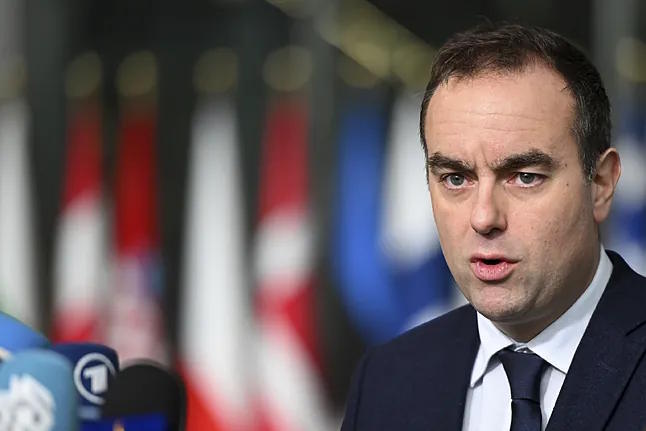Emmanuel Macron wasted no time in filling the power vacuum created by the resignation of centrist François Bayrou, appointing 'Macronist' Prime Minister Sébastien Lecornu, 39, who had served as Minister of Defense since 2022 and had survived successive government crises.
Macron's final decision caused unease within the ranks of the Socialist Party, where hopes of a moderate left turn by the President to broaden his fragile center-right government coalition were dashed. Lecornu, who had switched from The Republicans to Macron's party La République En Marche (rebranded as Renaissance), gained political weight due to his role in the Ukraine war and fits the profile of a moderate, "non-presidential" Prime Minister with a negotiator's demeanor that Macron was seeking.
His first major challenge will be renegotiating the austerity budget that led to François Bayrou's downfall, with ¤43.8 billion in social cuts and the elimination of two public holidays. Lecornu faces immediate threats of no-confidence votes from both the far-right and far-left, and his survival may ultimately depend on the votes of the centrist bloc and the Socialist Party.
The change at the Matignon palace came shortly after Interior Minister and leader of The Republicans, Bruno Retailleau, warned that France is at risk of "overflow" if the political vacuum is not filled quickly. Retailleau ordered the deployment of 80,000 police officers to deal with protests scheduled for September 10th. Retailleau warned of up to 600 possible blockades of the country's basic infrastructure.
Thousands of people celebrated the Prime Minister's resignation on Tuesday with banners saying "Bye, bye, Bayrou" in front of city halls in major French cities, as a preview of protests organized by the "Bloquons Tout" movement aiming to replicate the actions of the "yellow vests."
The Interior Minister directly accused the leader of La France Insoumise, Jean-Luc Mélenchon, of instigating "a climate of insurrection" and "fanning the flames of French frustration and anger" by supporting protests that could lead to a wave of violence on Wednesday.
After accepting François Bayrou's resignation shortly after losing the vote of confidence, Emmanuel Macron wasted no time in clearing the fog of potential candidates, with Sébastien Lecornu and Justice Minister Gérald Darmanin (founder of Populists and close to The Republicans) standing out initially. In the last hours, the names of two women also surfaced: veteran Catherine Vautrin, current Minister of Labor and Health, and Macronist President of the National Assembly, Yaël Braun-Pivet, who played a significant role during Bayrou's confidence vote.
Also gaining ground from the right was Xavier Bertrand, also linked to The Republicans and with experience in the governments of Dominique Villepin and François Fillon. From the left, the name of Bernard Cazeneuve emerged at the last minute, a brief Prime Minister for three months between 2016 and 2017 during François Hollande's presidency. Cazeneuve actually left the Socialist Party in 2022 due to his alignment with La France Insoumise and launched his own movement of moderate left, named La Convention.
Meanwhile, a total of 86 deputies, mostly from Jean-Luc Mélenchon's La France Insoumise, submitted a motion of no confidence in President Emmanuel Macron on Tuesday. In the motion, the deputies accuse Macron of "acting like an autocrat," "threatening the Republic," and "violating the Constitution in several aspects."
Although the impeachment of the President (invoking Article 68 of the Constitution) can be initiated with the support of one-tenth of the National Assembly, the initiative must go through numerous stages, can be rejected by the Assembly's board if it does not meet requirements, and has little chance of success.
